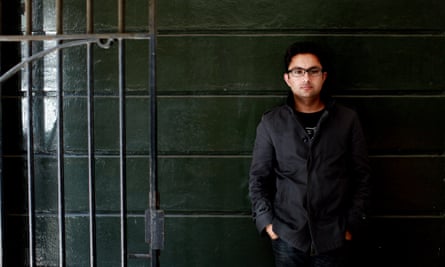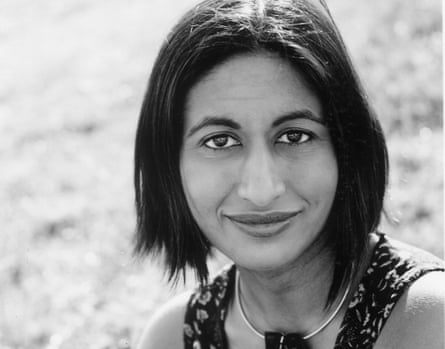My first book came out a year ago. It wasn’t a bestseller, and it wasn’t intended to be one. In Spite of Oceans: Migrant Voices is a quiet book of short stories based on real, everyday family lives. The stories are about how people deal with the messy stuff life throws at them; about relationships coming together, or unfolding, or crumpling under the tension of it all.
Over the course of the last year, I have started to feel out of sorts about the book. Several copies of it lie in my hallway cupboard, next to a box of old doorkeys, unintentionally kept over the years.
The problem is that I have had too much time to think about it – hindsight has got the better of me. I know the book is not awful, because it has been well-received and some objective readers have enjoyed it. But inside I feel it’s not brilliant – it’s not bad, it’s no big deal, it’s just OK. Which isn’t quite good enough. I keep thinking I could have done better, written better. If only this, if only that. Don’t we all feel that way when we’re striving to express something we care about?
They say hindsight is a wonderful thing. As a writer, however, it’s irritating, an itch in an awkward place. Hindsight does no favours for those who are naturally self-deprecating. Even though your work is already published, a writer can never quite draw a line and accept that something is finished. “Resign yourself to the lifelong sadness that comes from never being satisfied,” Zadie Smith wrote in her rules for writers. You self-indulgently edit and edit, tweak and tweak all the time in your head, and it’ll never, ever be perfect.
Although it can be an annoyance, hindsight does provide insights. I am not disowning or regretting my work; on the contrary, I own it completely, accept the bits that make me cringe, and aim to move on, to keep writing and to make that writing special. I am my own toughest critic, and hindsight has helped me figure out what I like and don’t like, in style and subject matter. I have learned what I am good at and what I am not so good at. I remind myself frequently that writing this book tested me, but it didn’t break me. Sometimes, thinking about it makes me determined to do better. It won’t be the only book I write.
In On Writing: A Memoir of the Craft, a book often recommended to both aspiring and published authors, Stephen King wrote: “I have spent a good many years since – too many, I think – being ashamed about what I write.” Self-doubt is heightened by procrastination. This kind of hindsight lodges itself in your mind like a relative who drops in uninvited and then stays far too long. How, then, to say enough is enough? How to tell hindsight to get the hell out? How to move on?
I asked seasoned writers for advice. I have learned that it’s OK to feel weird about your book, and that many writers are at odds with what they have written after it is published. But I also learned that you have to move on, because if you don’t it will consume you. In three words: get over it. Sometimes, you need to hear those words from another writer. Here’s what a few have to say:
Sathnam Sanghera, author of The Boy with the Topknot and Marriage Material
Every writer thinks everything they write is shit. You write your first draft and it horrifies you but you go back and make it better until it’s acceptable. You always tell yourself you can do better. But that’s all part of the writing process. It is just very, very hard.

When I read stuff out, I always rewrite it. I literally take a pen and I rewrite in my copy. But at the same time, when I read something back, I can be surprised in a good way. As you mature as a writer, you become more self-conscious about what you write and the way you write. When I look back at my first book, I’m surprised by how brave my younger self was both in subject matter and in style – I was a lot more experimental because I was still trying to find my voice.
As soon as you’ve written something, you have to move on. It’s a survival skill. You can’t be too emotionally invested in what you’ve written because it’s at the mercy of loads of people, readers, and loads of factors beyond your control. I think it’s important to have something to move on to as soon as it’s finished. For me, I’ve always had to work straight away and I couldn’t afford to procrastinate because writing is my living. With both books, I got back to my job and immediately forgot about the books.
For a time I did wish that I had been less frank about myself in my memoir, The Boy with the Topknot. I had thought a lot about my family while I was writing it and took a lot of care over what I was writing about them, but I didn’t think so much about myself. I revealed so much about myself. For a while afterwards, I wished I’d thought about that some more. But now it doesn’t bother me – it’s so long since it came out and, to be honest, I don’t even remember what I wrote. The more time that passes since your book comes out, the less you think about it. And that’s definitely a good thing.
Roopa Farooki, author of The Good Children
I absolutely understand the need to mull it all over after a book comes out. The best way for me to deal with it is to start writing something new as soon as I can, within weeks of completing a book. That takes away the desire to obsess over and postmortem the work.

I spent two years writing The Good Children, and it was painful to let it go. I added to it constantly, until the day I had to send it to the publisher. I thought of the characters and the world I had created for them for a long time afterwards. I didn’t have the objectivity to critique it at that point, because I was still so immersed in it – which wasn’t useful, either. When it’s gone, it’s gone.
That said, it is good to reflect about what you could have done better; it is part of the cathartic process. There are aspects of published books that I think, yes, I could have done a bit better. The opening of The Flying Man is very slow – it takes 70 pages to get to the story. When I wrote it, I didn’t think it was slow at all. With hindsight, I realise that I had sacrificed plot for character, and I think I could have handled that differently. I can see that was a weakness.
I’ve been more disappointed with books I’ve wrote that haven’t been published. The first book I wrote, Pomegranate, I didn’t succeed in getting published. I realised later that this was a good thing. I would have had a tough time defending it, because the integrity of the story just didn’t flow through. Looking back, the writing in that book is not of a quality that I would be happy with in the public domain.
I believe that a writer’s best work is still ahead of you. We have to be our own harshest critics, because we have to be accountable for the quality of our work. Your work can’t be perfect – if it was, you’d have nowhere else left to go.
Nikesh Shukla, author of Meatspace
I have always been quite brutal with myself. I can still see the weaknesses in my writing, even after publication. When I do readings, I can hear where the syntax and rhythm isn’t right. It is quite reassuring when I’m doing a reading with other authors and can see that they’ve scribbled things out and written lines differently. We are all constantly editing and rewriting. Rewriting is part of the process, part of finding your own voice and finding confidence. But you also have to move forward and keep the momentum going.
For me, the next book always has to be better than the last book. After Meatspace came out last year, I wrote something quite quickly that I was really excited about. I thought it was going to be my third novel. Then I got busy and took a break from it, and by the time I returned to it, I realised it wasn’t better than Meatspace. It was an OK book, one I would have been able to write, but not a better book. It couldn’t be my third novel. So I putting it in a drawer. That was a tough decision, but I had to do it.
I have also realised that once your book is published, it’s not your book any more: it’s belongs to your readers. They’ll read things differently than you do; they’ll read their own lives into it. That’s when you have to say goodbye to it. It’s a bit like a bad breakup. It’s important to know what you’re working on next so you can build a new relationship with new characters in a new universe. Otherwise, you’ll always regret what you wrote.
Viv Groskop, author of I Laughed, I Cried: How One Woman Took on Standup and (Almost) Ruined Her Life
I don’t regret writing my book at all, although it was not easy to put something so raw out there. But after about a year, I was a bit fed up of talking about failure all the time. I wouldn’t want to be defined by my book, but I don’t disown it, because it is relevant for people who are trying to do something new and different in their lives. I had known that in order to write a halfway decent book, I was going to have to put in a lot of stuff that was very honest and that I would potentially “regret”. Everything worth writing should carry that risk. You can’t do anything useful or interesting without taking that risk.

Writers are great at procrastinating. You have to stop beating yourself up about a book you’ve published and move on to the next thing. If it stops you from writing, you have to work on letting it go.
For me, it’s not about liking the book or disowning it, it’s more that it feels like it was written by a completely different person. Which it was: the me of three years ago. I don’t know if I would improve on it for next time. I would just write a different book, which I would then move on from. It’s not about trying to write the perfect book (and then rewriting it again and again). It’s about writing as honestly as you can at a specific moment.
Rosie Dastgir, author of A Small Fortune
I definitely suffer from dwelling too much on the past – and it’s not always a good thing to do. A Small Fortune took so long to write that I had a very long time to critique it. By the time it was published, I felt a certain detachment from it, and it had a life of its own. But while I was trying to work on the next novel, I have been much, much harder on myself. It feels like I’m starting all over again, and it’s been hard to remain optimistic.
Recently, I found myself in the middle of trying to work on lots of things at the same time – radio plays, short stories, the new novel – and none of them quite caught light. I lost a lot of energy and a lot of time. I kept beating myself up about it and I put a lot of pressure on myself. In the end, I did a complete U-turn on the new novel and I needed to put it on hold. That wasn’t easy to come to terms with. Authors have to be prepared to leave something behind and they can’t fetishise the writing. It is sometimes better to put a draft to one side and start something fresh instead of rewriting the same thing again and again.
I have learned that, when it comes to being successful, it’s not just about talent and inspiration, but also about being optimistic, resilient and flexible and being able to bounce back. That can take hard work, but you have to be that way in order to sustain a creative life.

Comments (…)
Sign in or create your Guardian account to join the discussion